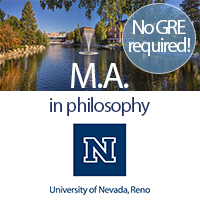The BJPS Referee Of The Year Award
The British Journal for the Philosophy of Science (BJPS) has a “Referee of the Year” award.
The editors of the journal selected Kenny Easwaran, associate professor of philosophy at Texas A & M University, as the winner of the award for 2019, praising him “for his willingness to act as a referee, for the timeliness of his reports, and for the very high quality of those reports.”
The idea for the Referee of the Year award appears to have initially been floated by Marc Lange (University of North Carolina, Chapel Hill) in a blog post at the end of his term as an associate editor of the BJPS:
After reading a particularly useful referee report, I sometimes thought that BJPS should consider giving an award to the ‘Referee of the Year’ or ‘Most Valuable Referee’ (or something like that)—a referee who does something especially outstanding, such as refereeing a paper on an especially short deadline, or looking at draft after draft of the same paper and shepherding it along to ultimate success, or carrying out an enormous volume of refereeing chores. There might be a fair degree of agreement on likely award-winners among the journal’s editorial staff.
From what I can tell, the award was first given out last year, for work during 2018, to Adrian Currie (University of Exeter).
About the award, the editors of the journal write:
Referees who give papers great care and attention, and respond in the spirit of moving the conversation forward, perform a great service not only to the author and the journal, but to the field as a whole. In order to offer some public recognition for this crucial labour, the BJPS and the British Society for the Philosophy of Science have created a Referee of the Year award. Winners become Honorary Members of the British Society for the Philosophy of Science, a life-time position.
Do other journals have similar awards?




Nous gives all referees a certificate! Mine is on my Mum’s fridge, along with all my other ‘everyone gets a trophy’ trophies.
That’s awesome, Kenny, congrats!
This is great. If other journals don’t do this, they should! It strikes me as a low cost way to incentivise quality review work, which otherwise goes unrecognised. This is similar to the common practice of giving departmental teaching awards to PhD students. It isn’t zero cost (since it requires some time and effort from the editorial board to make these decisions), but it sure seems like a great way to try and help improve the situation.
Also, congratulations Kenny and thank you for your valuable service!
Apply a reverse-psychological perspective to this : now, in the hope of adding another line to their cv and scoring whatever other free bling one gets with this, faculty (particularly but not exclusively of the younger and precarious sort) will be more willing to take on more unremunerated work for non-open access journals owned by consortia.
BJPS is not open access, but I don’t think I would classify the British Society for the Philosophy of Science (the owner) or Oxford University Press (the publisher) as the sort of problematic entity that own or publish many other major journals. (I have not yet adopted a policy of refusing work for journals owned or published by the couple biggest and worst offenders, but I am certainly considering it.)
I do think there’s a lot we should be doing to more properly remunerate the people whose work allows our profession to continue. Probably cash payments would be better than the chance of some free publicity like this, but CV lines are the going currency for most other forms of research (publications and presentations), teaching (graduate students supervised), and service (journals edited, conferences organized, etc.) All of these would be fairer with direct cash payments, but CV lines can sort of be cashed in with the universities that officially employ us on behalf of the intellectual community at large.
Oh, and the free bling I got (apart from the nice publicity on this blog) is lifetime honorary membership to the British Society for the Philosophy of Science. I’ll have to try to get across the pond on the dates of one of the meetings some time!
This is a really awesome and I don’t know why some journal hasn’t done this before. And congratulations to Kenny.
Anyway it’s incredibly cynical to dismiss the importance of something like this in the way Neoliberal philosopher does. To my mind the real importance of awards like this and other recognition isn’t primarily that they recognize and reward good work, but rather that they are a way of publicly state what the profession values. I suppose if you think we’re all homo economicus (and how neo-liberal is that?) you think that the only reason we do anything is in the hope of some pay out. But that’s too simple. We tend to value certain things in and of themselves because we think that other academics do and we tend not to value others because we think other academics don’t. Despite its vital importance refereeing is one of those things that the profession as a whole simply doesn’t seem to value and so people are comfortable refusing to do it or doing a shabby job.
Having said that I do think journals and the profession at large ought to more to give referees something for their service. I know some will give referees access to their journals for a year, which is a pretty cool thing though maybe not that important if you have a decent library or just know how to get around paywalls (these days pretty much every journal is open access whether they want to be or not). At the community college where I work we’re expected to demonstrate some kind of research activity each year and refereeing for a journal will satisfy that as well as publishing a paper will. I know more research focused institutions can’t do that but they could give refereeing more weight in tenure and promotion decisions. After all, not only is refereeing important but getting asked to referee is a good sign one’s work in an area is taken seriously. I’m not so sure about paying referees generally, since say $25 or $50 wouldn’t make any real difference to those of us with stable jobs, but it probably would be a good thing to pay broke adjuncts and grad students cash for their trouble if journals must use them.
I don’t think it incentivizes doing more reviews; rather, it incentivizes, if anything, doing your work well, and I can’t imagine a good reason to bemoan that. I mean, if you’re going to do shitty reviews (and the odds might be that you will if you’re accepting many more of them, and only for the sake of a CV line), the odds are that you’re not going to get that award. So I’m puzzled what you think the incentive structure is like.
Kudos to Kenny — and to all reviewers who do their job well!
I wholly agree with the points made by Kenny, Sam, and Nicolas, but have one small point to add.
The situation described by Neoliberal philosopher seems to based on implausible assumptions about our motivations. Given how busy we all are with things that are far more valuable to our career prospects than the extra line on a CV and whatever bling, it would seem really weird for someone to divert their attention to complete as many reviews as possible so as to maximize their changes of receiving one of these awards. Most of us (I’d like to hope) take on whatever proportion of the assignments we receive as are feasible given our other commitments.
Now, *perhaps* there are some folks out there like the one’s Neoliberal philosopher describes (maybe Neoliberal philosopher themselves). But, surely there are many more who wouldn’t agree to more assignments on the off chance of this kind of award. And, it seems plausible that this might help assuage the nihilism one sometimes feels as a reviewer who does their best at a thankless (but incredibly important) task that many others clearly don’t take seriously.
How about an award for the worst referee? That’d be funny and all. This is kinda Stakhanov award is too square…
Kenny for President.
I’m happy for the awardees, but I think it’s a really bad idea. Journals should think about a meaningful way to reward the legions of philosophers doing the hard, unpaid work for them. Many of us do their best in helping them, but will unlikely be in line for such awards. And not because we do poor reviews, but because we have other commitments and/or are spread across several journals providing our free service. Given the volume of reviewing that is going on, I suppose it’s not unreasonable to think that many reviewers put in a decent effort with a helpful outcome (for the journal). This is what should be rewarded. And if it’s really the case that only a minority of reviewers put in a decent effort and are helpful, then by all means reward only them. But as it stands, this system comes across (to me) as if all these decent reviewers just aren’t quite good enough for the editors’ tastes: ‘must do better’.
That sounds like a global argument against all prizes in all spheres of life. (Which, sure, can be made, but doesn’t have anything to do with journals in particular.)
I just don’t see this. The college where I used to work as a lecturer just started giving awards for teaching, and I know this because a friend of mine who richly deserved it got one. If I still worked there this wouldn’t be a sign to me that the rest of us were judged to be inferior teachers but rather that this dude is exceptional and that the school is finally doing something to recognize the value of teaching. As David Wallace says this seems an argument against any sort of prize and it doesn’t really hold up. No one takes the fact that Stephen Strasburg won the 2019 World Series MVP award to mean that the rest of the Nationals were mediocre in the series. But really I’d push back on only doing decent work for journals. I’m not sure what you mean by decent, but given the vast importance of journals for advancement in our profession referees often literally have people’s careers in their hands. To my mind that calls for more than a decent job. I teach a 5/5 load and serve on several committees and when I’ve refereed I don’t think I’ve ever turned in a report of less than about a page typed except on really good papers on which I basically recommended acceptance, conditional acceptance, or at worst minor revisions. And I think that I’ve only taken more than a month to get the review in once. So yes I do think referees must do better, especially given some of the reports I’ve gotten back and the amount of time it’s taken to get them back. Honestly, most are good and some extremely helpful but I sometimes still get back two or three line ones that say nothing or worse yet five or six line ones that are basically nothing but invective tearing me apart for not discussing (I presume) the referee and his cronies.
Journal editors are the power brokers in philosophy. Either singly, or as a consortium, they could easily demand that if you don’t review (on time!) then you don’t get to submit. Then we’d see a rather different attitude towards reviewing.
I like the way that journals like Frontiers lists the referees on published papers. That seems very civilised to me.